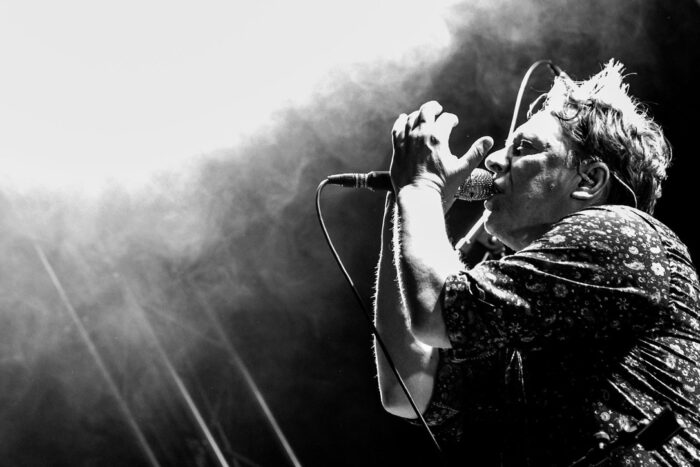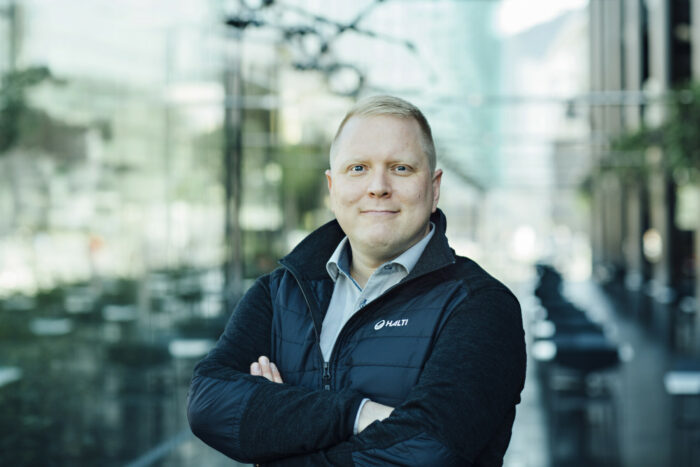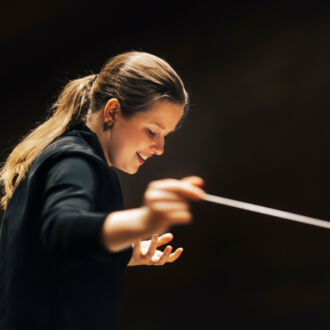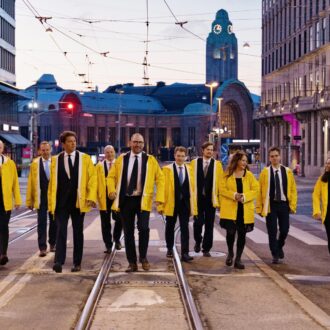One song is a heroic, Bruce Springsteen-style power ballad about a highway. Another tells the poignant tale of someone whose groceries have spilled on the kitchen floor. A third is a playful approach to the words yes and no, which people often mix up after suffering a stroke. Each contains comforting, empowering lyrics and a touch of melancholy.
These are songs written by Heikki Salo for a rehabilitation programme for stroke patients, led by Teppo Särkämö, associate professor of neuropsychology at the University of Helsinki.
Salo (born in 1957) has led the rock band Miljoonasade (Million Rain) since the mid-1980s and written hits for many other groups and singers. He’s also done music for kids, TV shows and a music therapy app, as well as textbooks, school material and songwriting courses, including programmes for people with disabilities.
Though clearly well qualified for the task, Salo quips, “I guess I was asked to join this project because of my age! I share the same age reality with many of these rehabilitation patients.”
Music for mood improvement

Heikki Salo, who has written hits for an array of Finnish bands, also wrote songs especially for a rehab programme for stroke patients, run by the University of Helsinki.
Photo: Antti Mäkijärvi
The project aims to develop a music-based remote rehab programme for stroke patients, with a clinical trial starting in early 2025.
“We’re well underway in developing this rehabilitation tool so that patients can train at home to boost their verbal, motor and cognitive functions, including attention and memory,” says Särkämö. “It should also improve their mood and outlook.”
If the programme is effective, he hopes to make it widely available for stroke patients to use alongside conventional physical and speech therapy.
Crucial to this project are tailor-made songs by Salo, based on his broad experience across various genres and personal study of the subject.
“The work took about a year and a half,” he says. “For the first six months, I just read everything I could get my hands on about strokes, aphasia and so on. During that period, I came up with dozens of ideas for songs. Teppo and his research team chose the ones they thought were good, so those were the guidelines for my work.”
The songs touch on issues close to stroke survivors and target words that aphasic patients can train through singing and melodic intonation therapy. For help with that, Salo collaborated with music therapist Jyrki Nikkilä, who he’d worked with on the music app – and with patients themselves.
He and Nikkilä sat in on chat room meetings for people in rehabilitation. “We discussed topics that were important to them and listened to their wishes,” says Salo. “In autumn 2023, we sang the first songs with members of rehab group.” After that, he revised the songs.
“Songwriting itself is a solitary job,” he says. “It helped to have a list of words that were important to the rehabilitees. I sprinkled them into the texts and used them to discover new topics and to create melodic intonation phrases for the research.
“I discussed the patients’ relationship problems, depressions, fears and hopes. I always aim to touch the people who will sing these songs – including those undergoing rehabilitation and their loved ones. But mainly I wanted them to sound like ‘ordinary songs.’”
Powerful musical memories

Music is useful in rehabilitating stroke patients, says University of Helsinki associate professor Teppo Särkämö.Photo: Kirsi Tuura
Särkämö says music has been proven to be useful in rehabilitating patients with stroke and other neurological disorders.
“Many musical elements, such as rhythm, melody, lyrics and emotional capacity, have been successfully used in rehabilitation of stroke patients,” he says. “Movements performed to musical rhythms can assist in regaining the ability to walk and move their limbs. Melodic intonation and singing can enhance communication and verbal skills. And listening to music every day can help recover memory and attention while alleviating depression.”
Aphasic individuals who have lost the ability to speak can often still sing, and those with dementia often recall memories triggered by a familiar song from their childhood or youth.
“Hearing a familiar song elicits emotions, which is turn are cues for recalling personal, autobiographical memories,” says Särkämö.
In the brain, speech occurs mostly in the left hemisphere, but singing occurs in both hemispheres – so it can be a bridge toward regaining speech.
The University of Helsinki programme combines singing, instrument playing, rhythmic movements and music listening, which patients do at home with a tablet and training videos. They also have weekly remote sessions with a music therapist.
While individual elements of the programme have been beneficial for stroke recovery in previous studies, they’ve always been used separately.
“Our project combines them all into an easily accessible remote platform so music can be applied more widely in rehabilitation and with more versatility,” Salo says. “Of course, we hope that patients will enjoy using it. That’s crucial for the success and results of the trial.”
Salo has already received positive feedback from patients.
“A woman who sang one of my songs asked if she could cut out the chorus and stick it on her refrigerator door so that she could read it every day,” he says. “That’s when I knew I was on the right track.”
By Wif Stenger, November 2024






